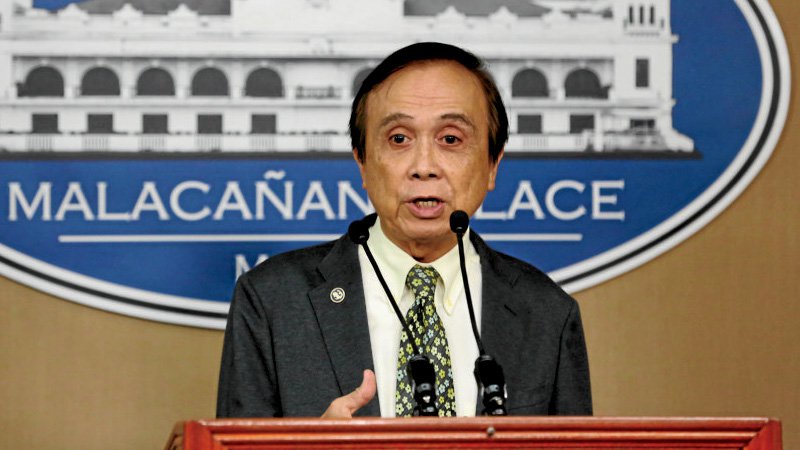Credit watchdogs still bullish on PH
Credit-rating agencies remained “impressed” with the Philippine economy’s solid fundamentals that are seen to attract more foreign direct investment even as they urged the government to ramp up revenues as well as focus on reducing poverty and income inequality, the country’s chief economist said.
“The general sentiment was very positive, suggesting inward investments,” Socioeconomic Planning Secretary Ernesto M. Pernia told the Inquirer last Friday when asked about the economic managers’ meetings with debt watchers, multilateral lenders as well as businessmen on the sidelines of last week’s spring meetings of the World Bank Group and the International Monetary Fund.
In the case of credit-ratings agencies, “Moody’s and S&P (Fitch was not there) seemed impressed with what we told them about the Philippine economy,” said Pernia, who heads state planning agency National Economic and Development Authority. The Philippines currently enjoys investment-grade credit ratings from the top three global debt watchers.
“What we need to work hard on are expanding our revenue base—thus, the comprehensive tax reform program is a must—and raising our GDP (gross domestic product) per capita,” Pernia said.
The Duterte administration’s comprehensive tax reform program, with the first package pending in Congress, is aimed at easing the burden on income earners while imposing additional or new taxes on consumption to raise funds for the massive infrastructure buildup over the next six years.
Article continues after this advertisementThe first package under House Bill No. 4774 contained the proposal to lower personal income taxes, broaden the value-added tax base by cutting down on exemptions, increase excise taxes on petroleum and automobiles as well as reduce the estate and donors’ tax rates.
Article continues after this advertisementSpecifically, the bill will adjust personal income tax brackets to correct “income bracket creeping;” reduce the maximum personal income tax rate to 25 percent over time, save for the “ultra-rich” who would be slapped a higher 35 percent, and shift to a simpler modified gross system.
Finance Secretary Carlos G. Dominguez III earlier said comprehensive tax reform was the key link in the grand effort to break out from the cycle of low growth and build a dynamic and inclusive economy for the people.
“The tax reform package will support investments in our human capital, upgrading the educational system and providing quality health care. It is a proactive and propoor measure that supports the expansionary fiscal posture of the present administration,” Dominguez said.
“The comprehensive tax reform package is an indispensable component of the Duterte administration’s economic strategy. It is an audacious strategy that seeks to lift our country to upper middle-income status by 2022 and high-income status by 2040,” according to Dominguez, referring to the government’s medium-term development program and long-term vision.
The Philippine Development Plan 2017-2022, which serves as the Duterte administration’s socioeconomic blueprint, targets 7 to 8 percent GDP growth in the medium term by pursuing the 10-point agenda ultimately aimed at reducing the poverty incidence to 14 percent by 2022 from 21.6 percent in 2015.
The AmBisyon Natin 2040, meanwhile, which had been adopted by the Duterte administration as the long-term vision for the Philippines, is aimed at tripling Filipinos’ per capita income to $11,000 in 24 years’ time by sustaining at least 6.5-percent annual GDP growth alongside the implementation of policies that would make the Philippines a high-income country by 2040.
